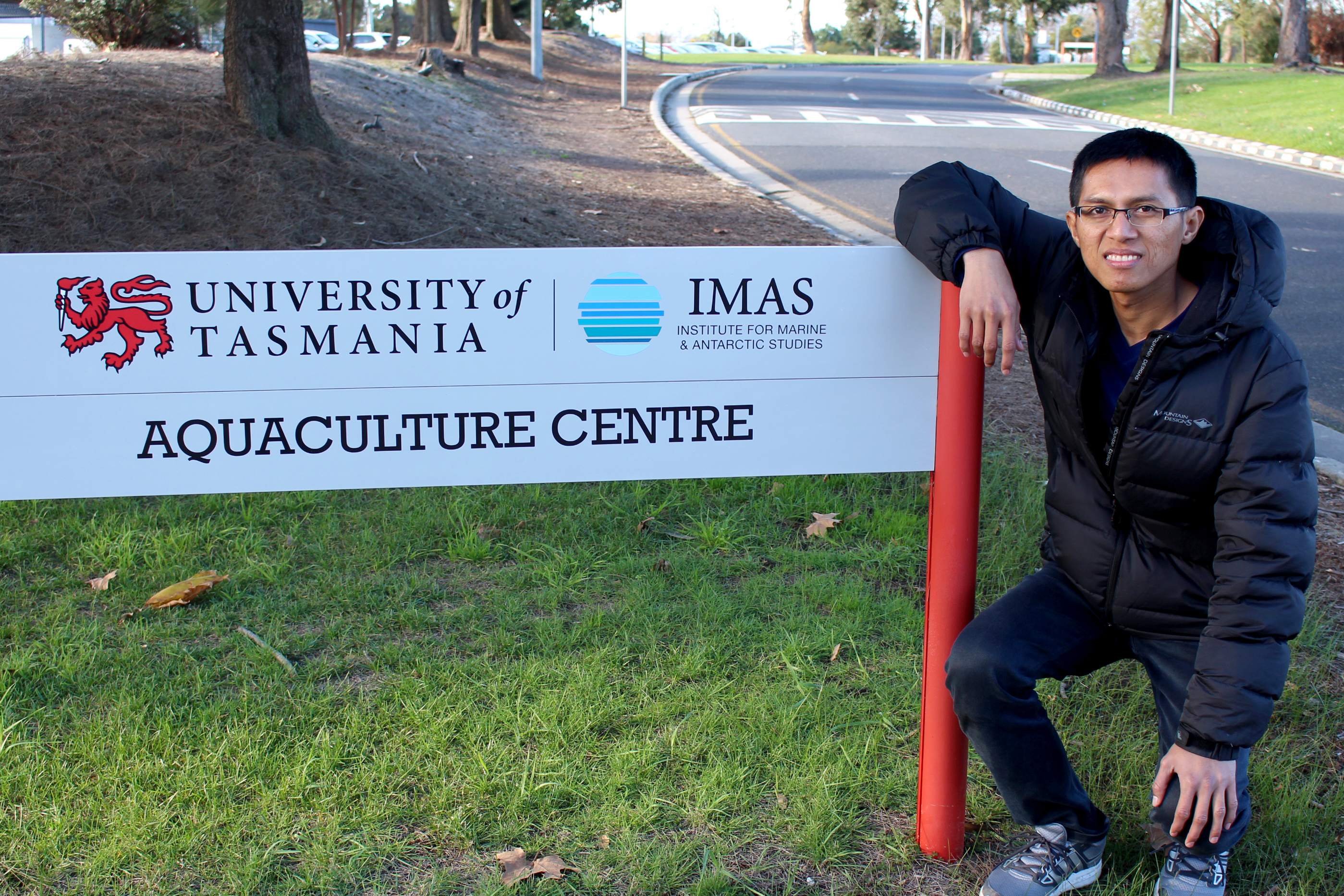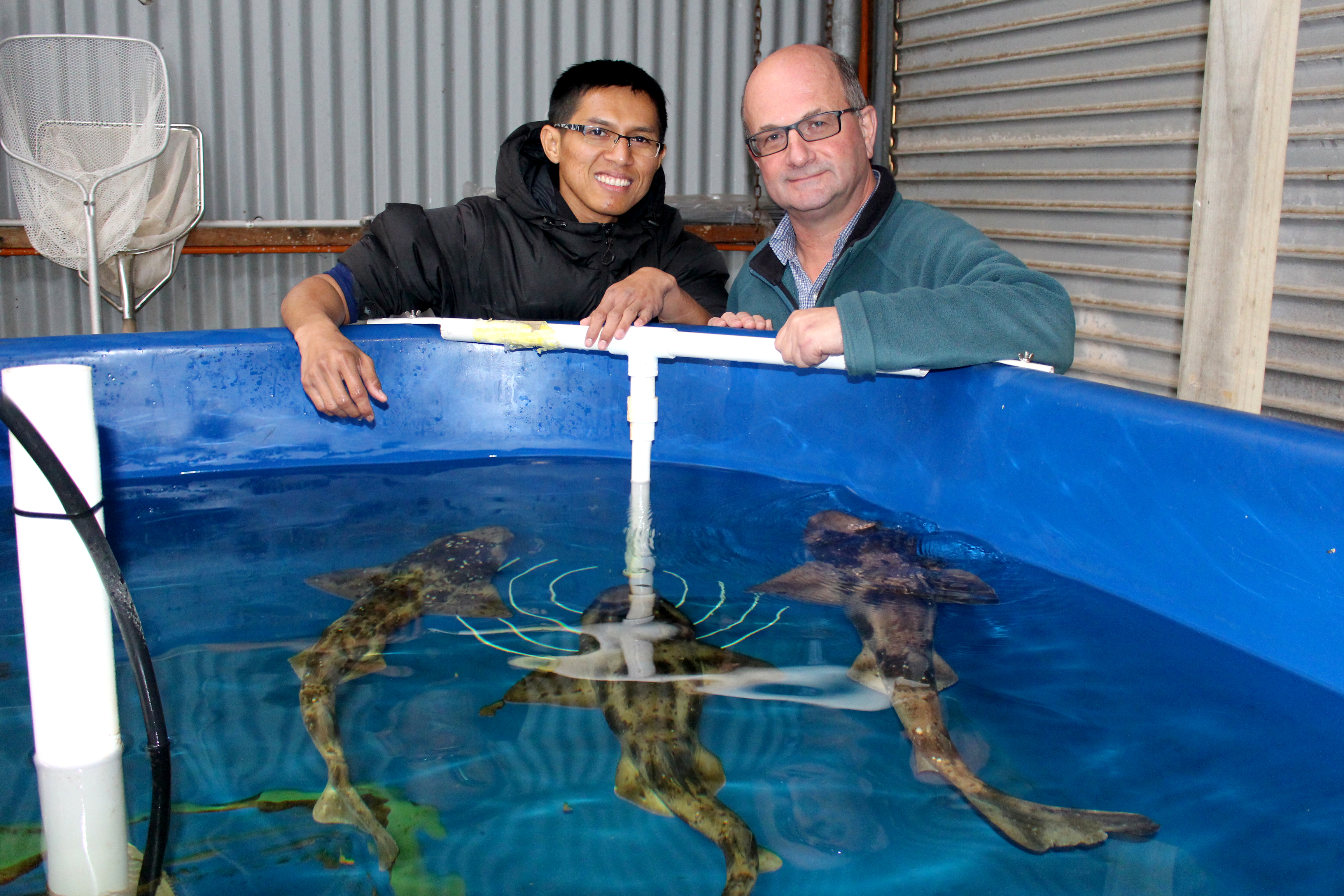
How do you keep sharks out of lobster pots and off fishing longlines?
That’s the million-dollar question that could be the key to boosting sustainability in both the Tasmanian and Indonesian fishing industries.
Lobster pots can be magnets for draughtboard sharks but recent research has shown that magnets could also be the answer to keeping them away.
Along with other predators such as octopuses, the draughtboard sharks which are endemic to southern Australia cost Tasmania’s rock lobster industry significant income each year.
The sharks are attracted to lobster pots by the bait or by lobsters caught inside but then become trapped themselves, creating unwanted bycatch and deterring other lobsters from entering.
 For the past two years at IMAS in Launceston, Indonesian student Muhammad Arif Rahman (pictured, left, with Nick Rawlinson and a draughtboard shark tank) has worked with his Masters supervisor, IMAS lecturer Nick Rawlinson, to build on research by previous students on whether magnets can be used to deter draughtboard sharks from entering lobster pots.
For the past two years at IMAS in Launceston, Indonesian student Muhammad Arif Rahman (pictured, left, with Nick Rawlinson and a draughtboard shark tank) has worked with his Masters supervisor, IMAS lecturer Nick Rawlinson, to build on research by previous students on whether magnets can be used to deter draughtboard sharks from entering lobster pots.
Arif conducted experiments in tanks to test the reaction of draughtboard sharks to powerful magnets.
“The results show there is a significant difference in the behaviour of the draughtboard shark when they are around the magnets compared with their behaviour around control and procedural control treatments.
“Sharks can detect weak electro-magnetic fields and if they detect a magnetic field they will avoid the area.”
Arif is keen to continue his research with Nick Rawlinson in the future by testing magnets on pots in the wild.
But for now he’s heading home, having completed his Masters degree, and plans to test magnets in the Indonesian fishing industry.
“When I first came to Tasmania I’d been working as a lecturer’s assistant at a university in Indonesia so I’ll go back and apply to be a lecturer because now I have my Masters. That will give me the opportunity to test the magnets in Indonesia.
“This will probably be with longlining because sharks also get caught on tuna longlines and are unwanted bycatch.
“This is becoming an issue in Indonesia as awareness of sustainable fishery starts to rise.
“People are becoming more conscious of sustainable fishing, especially the impact on sharks, and the government is more conscious of it too.”